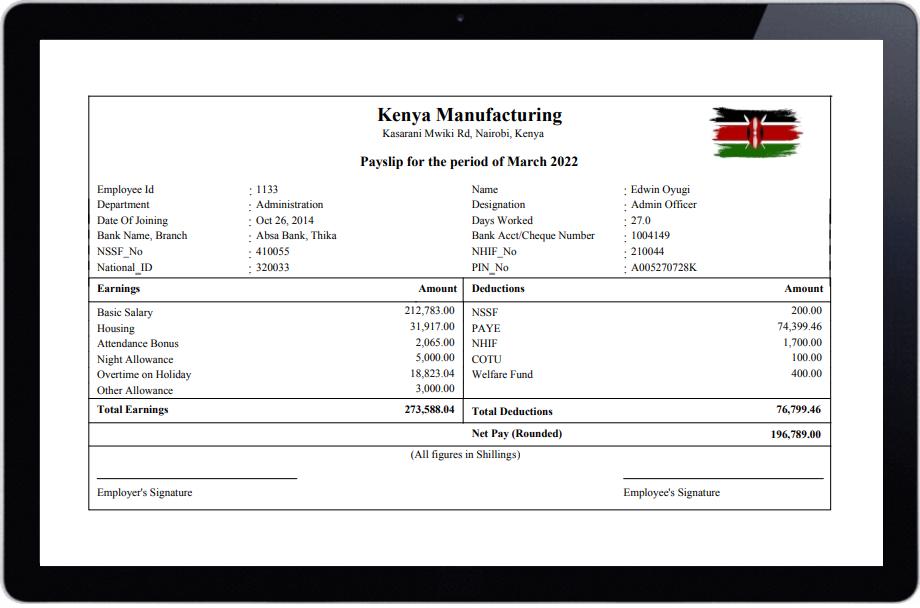Electrical engineers in Kenya play a pivotal role in shaping the country. However, one question that often arises when considering a career in electrical engineering is, “What’s their monthly salary like?”
The factors that influence electrical engineering salaries in Kenya include:
Experience: Electrical Engineers with more years under their belts tend to earn higher salaries. One good thing about this career is that, once a professional acquires enough experience working, he or she is not replaceable, unless otherwise.
Education: The level of education can also impact your salary. Electrical engineers with advanced degrees, such as a Master’s or Ph.D., often command higher pay.
Employer: Where you are employed matters. Salaries can vary significantly from tenders and contracts or permanent jobs.
Industry: In Kenya top corporate companies or industries such as East African Breweries · United Nations · KCB Bank Limited · Kenya Revenue Authority · Kenya Pipeline Company · Kenya Electricity Generating Company have a substantial impact on your earning potential.
Electrical engineering salary per month
Internship salary: Top companies like KRA and KPLC offers Monthly Salary payable for electrical engineers of Kshs. 15,000-25,000 and is subject to statutory deductions.
With a diploma in Electrical engineering, your starting salary in companies like Kenya Power will not be less than Sh 60,000 per month. I personally know highly skilled individuals working in Kengen and Kenya Power who are paid over Sh 150,000 with hefty allowances
The managing director of KPLC Kenya Mr Siror holds a Bachelor’s degree in Electrical Engineering from the University of Nairobi and earns about 2 Million to 3.5 Million per month
| Experience/Education | Company/Position | Monthly Salary (Kshs) | Additional Information |
|---|---|---|---|
| Internship | Top Companies (e.g., KRA, KPLC) | 15,000 – 25,000 | Subject to statutory deductions |
| Diploma | Companies (e.g., Kenya Power) | Minimum 60,000 | Highly skilled individuals can earn over 150,000 with allowances |
| Bachelor’s Degree | Managing Director (e.g., KPLC Kenya) | 2,000,000 – 3,500,000 | University of Nairobi graduate |
Please note that, salaries are subject to change over time due to market conditions and economic factors.
Electrical engineering Jobs/companies in Kenya
Electrical Contractors: They are responsible for the installation, maintenance, and repair of electrical systems in residential, commercial, and industrial buildings. You can view the list of licensed electrical contractors by EPRA here
Telecommunications Industry: Electrical engineers can find employment in the telecommunications sector with companies like Safaricom, Airtel, and Telkom Kenya. They work on the design and maintenance of telecom networks, including cell towers and fiber optic infrastructure.
Manufacturing and Industry: They work on designing and maintaining electrical systems for production processes. Example of these companies include RIVATEX EA, Bamburi cement, Mumias sugar, Kapa Oil refineries among others
Construction Industry: They are responsible for electrical designs, installation, and compliance with safety standards.
Government and Public Sector: work for government agencies, counties, and regulatory bodies. Ministry of Energy and Petroleum (MoEP), Energy and Petroleum Regulatory Authority (EPRA), Kenya Pipeline Company (KPC), Kenya Electricity Generating Company (KenGen), Kenya Power and Lighting Company, the Rural Electrification Authority (REA)
Consulting Firms: Some electrical engineers choose to work for engineering consulting firms. They provide expertise to clients on various projects, such as energy efficiency assessments, electrical system design, and project management this can be established by registering with firms like engineering board of Kenya. Can a diploma holder apply for EBK? Eligibility for membership is dependant on completion of an accredited or recognised engineering qualification, coupled with relevant work experience in the engineering field.
Research and Development: Research institutions and universities often employ electrical engineers as researchers and educators. They may conduct research in advanced electrical technologies or teach the next generation of engineers.
Hospitals and Healthcare Facilities: Electrical engineers can work in healthcare institutions, ensuring the electrical systems are reliable for medical equipment and patient care.
Aviation and Transportation: Engineers can also find employment in aviation and transportation sectors, working on airport electrical systems, railways, and public transportation networks. There are 38 Airports in Kenya. The Mombasa–Nairobi Standard Gauge Railway is a standard-gauge railway (SGR) in Kenya that connects the large Indian Ocean city of Mombasa with Nairobi and offers opportunities for electrical engineering careers.
References
1. Tuko media. Retrieved from https://www.tuko.co.ke/politics/504530-joseph-siror-illustrious-career-education-kplc-boss-enjoys-strong-bond-ruto/
2. Kenyan magazine. Diploma salaries? Retrieved from https://kenyanmagazine.co.ke/kplc-salary-scale-kenya-power-employees-salaries/
6 months certificate courses in Kenya

